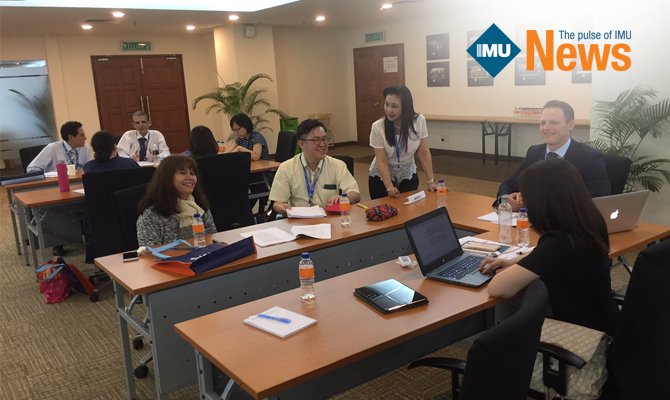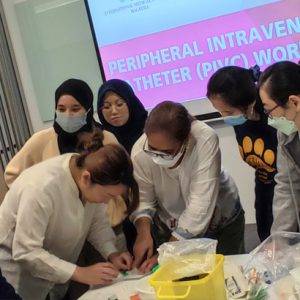Each time when we purchase medicines or nutritional supplements over the counter from any pharmacies, it has never dawned on us the time, effort, and processes it takes to come up with such products. Extensive pre-clinical or laboratory research has to be done to bring a new drug to the market, which may take at least 10 years and US$ 125 million. However, that is not all. The products still need to undergo exclusive testing on human subjects which involve years of experiments. This is required before approval can be obtained from the regulatory body for the products to be marketed. The experimental testing conducted on human subjects is what we call clinical research and clinical trials. 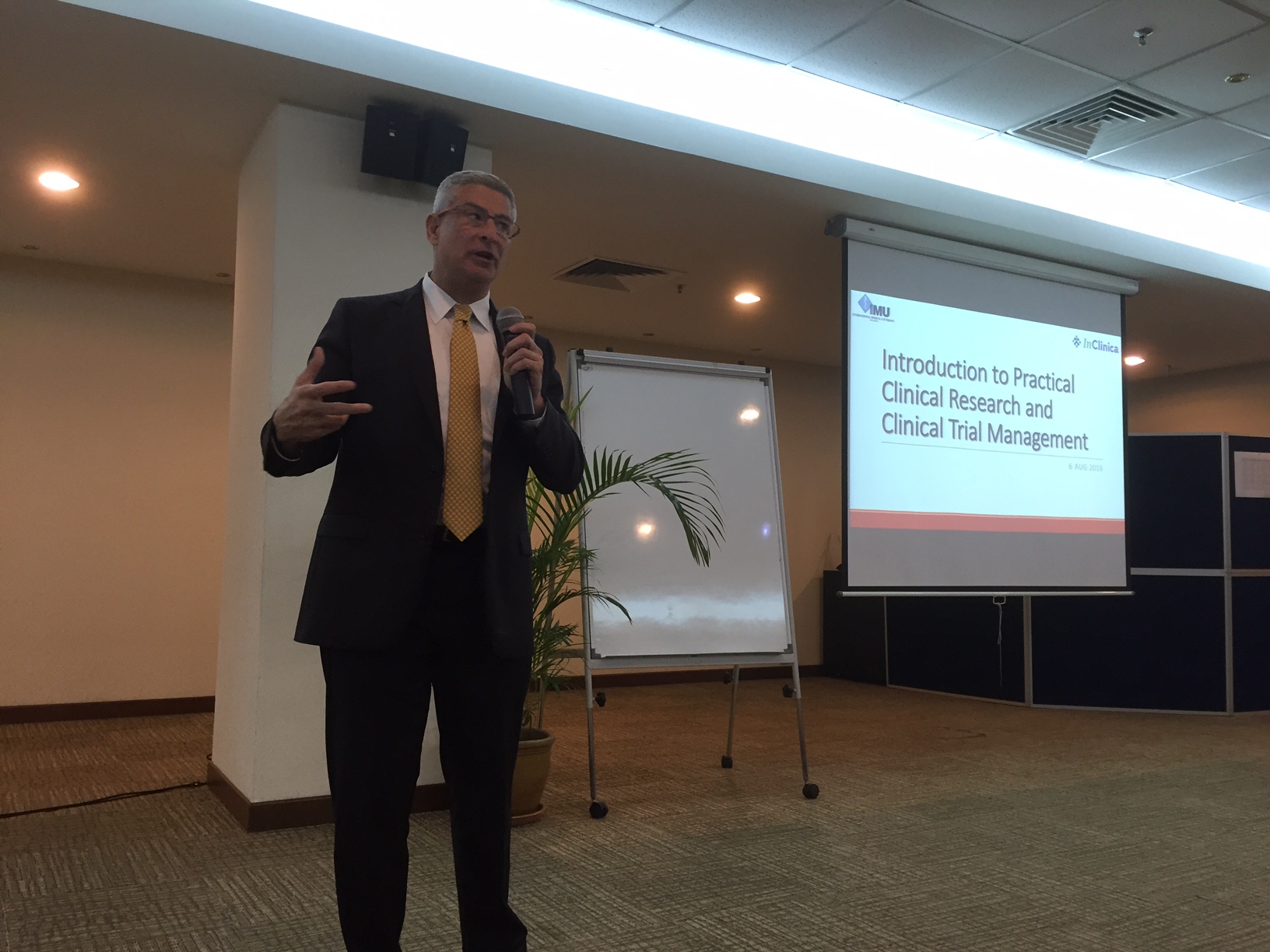 A workshop titled Introduction to Practical Clinical Research and Clinical Trial Management was held at the Bukit Jalil campus of IMU on 6 August 2016. This workshop was jointly organised by the Institute for Research, Development and Innovation (IRDI) together with the Centre for Lifelong Learning (ICL), IMU in collaboration with InClinica, a global clinical contract research organization (CRO) that specialises in leading companies through clinical trials. It was a one-day course designed to enhance and improve core knowledge and practical insights related to Clinical Trial and Research Management. This course had provided a practical approach on the fundamentals of clinical research ranging from planning the development of clinical trials to reporting requirements through the use of an interactive and practical case study methodology. A total of 20 participants consisting of of IMU faculty and students, staff from government agencies, hospitals, and pharmaceutical industries as well as researchers and students from other universities and research institutions attended this workshop.
A workshop titled Introduction to Practical Clinical Research and Clinical Trial Management was held at the Bukit Jalil campus of IMU on 6 August 2016. This workshop was jointly organised by the Institute for Research, Development and Innovation (IRDI) together with the Centre for Lifelong Learning (ICL), IMU in collaboration with InClinica, a global clinical contract research organization (CRO) that specialises in leading companies through clinical trials. It was a one-day course designed to enhance and improve core knowledge and practical insights related to Clinical Trial and Research Management. This course had provided a practical approach on the fundamentals of clinical research ranging from planning the development of clinical trials to reporting requirements through the use of an interactive and practical case study methodology. A total of 20 participants consisting of of IMU faculty and students, staff from government agencies, hospitals, and pharmaceutical industries as well as researchers and students from other universities and research institutions attended this workshop. 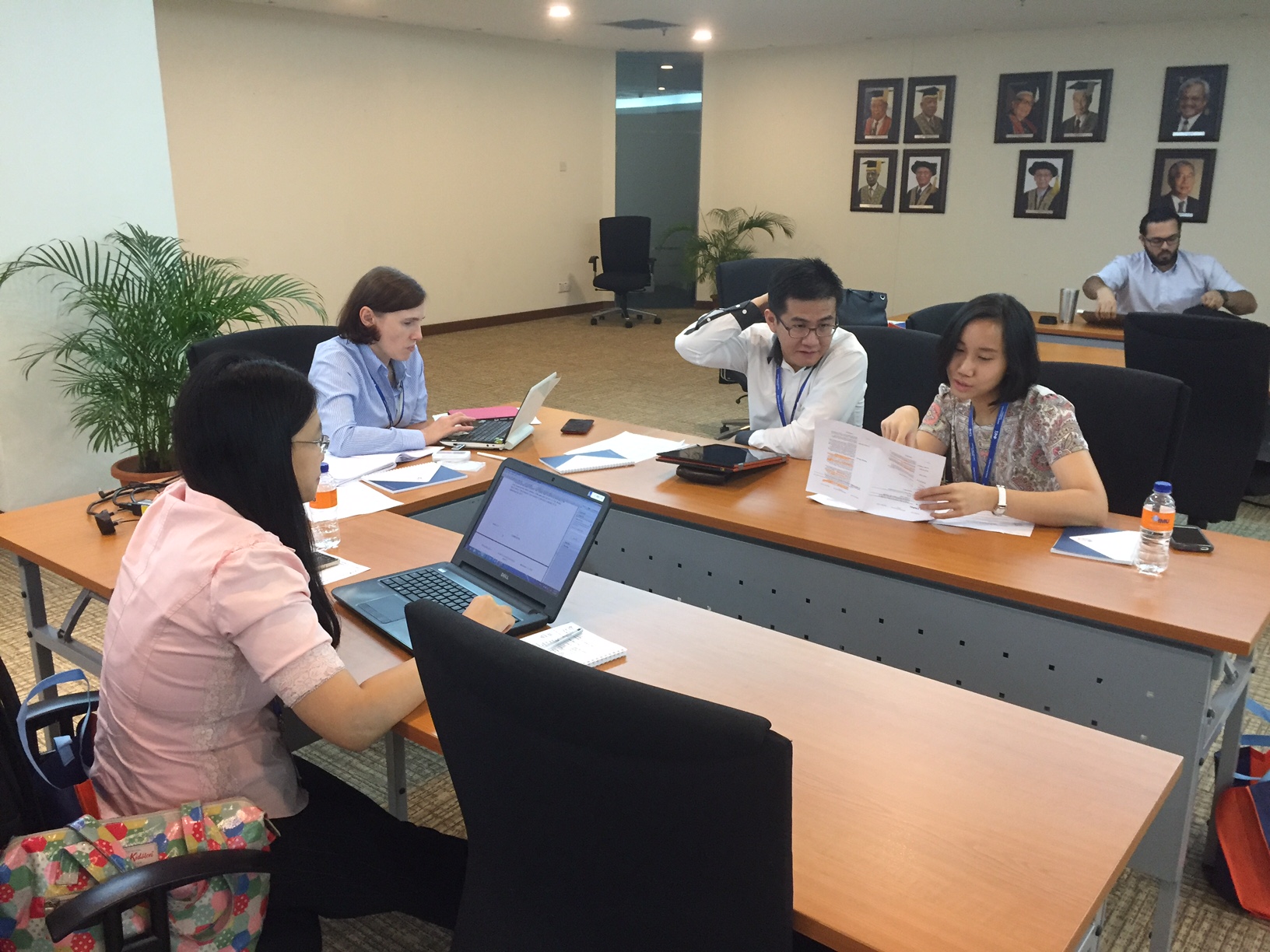 The keynote speakers of this workshop were Mr Jefferey Scott Yablon, Vice President and General Manager of InClinica; Prof Dato’ Dr Anuar Zaini, Professor of Internal Medicine from Monash University Malaysia; Prof Teng Cheong Lieng, a Family Medicine doctor from IMU’s Seremban Clinical Campus; Dr Khairul Faizi Khalid from Clinical Research Malaysia (CRM); Dr Sulakshana Vijayakumar, Manager for clinical operations and data management of InClinica; and also Dr Yap Poh Sin, Senior Lecturer from IRDI, IMU. The workshop started with Mr. Jefferey giving a good description of what clinical trials and clinical researches are. He also gave a scenario of the issues and opportunities in the global clinical research environment. Subsequently, Dr Khairul gave a very informative talk on the regulatory authorities and key guidelines crucial in clinical trials and clinical research. This was followed by Prof Dato’ Dr Anuar Zaini, who highlighted the importance of designing and abiding to the trial protocols, which are the rules and procedures by which how a trial should be conducted to generate meaningful results.
The keynote speakers of this workshop were Mr Jefferey Scott Yablon, Vice President and General Manager of InClinica; Prof Dato’ Dr Anuar Zaini, Professor of Internal Medicine from Monash University Malaysia; Prof Teng Cheong Lieng, a Family Medicine doctor from IMU’s Seremban Clinical Campus; Dr Khairul Faizi Khalid from Clinical Research Malaysia (CRM); Dr Sulakshana Vijayakumar, Manager for clinical operations and data management of InClinica; and also Dr Yap Poh Sin, Senior Lecturer from IRDI, IMU. The workshop started with Mr. Jefferey giving a good description of what clinical trials and clinical researches are. He also gave a scenario of the issues and opportunities in the global clinical research environment. Subsequently, Dr Khairul gave a very informative talk on the regulatory authorities and key guidelines crucial in clinical trials and clinical research. This was followed by Prof Dato’ Dr Anuar Zaini, who highlighted the importance of designing and abiding to the trial protocols, which are the rules and procedures by which how a trial should be conducted to generate meaningful results. 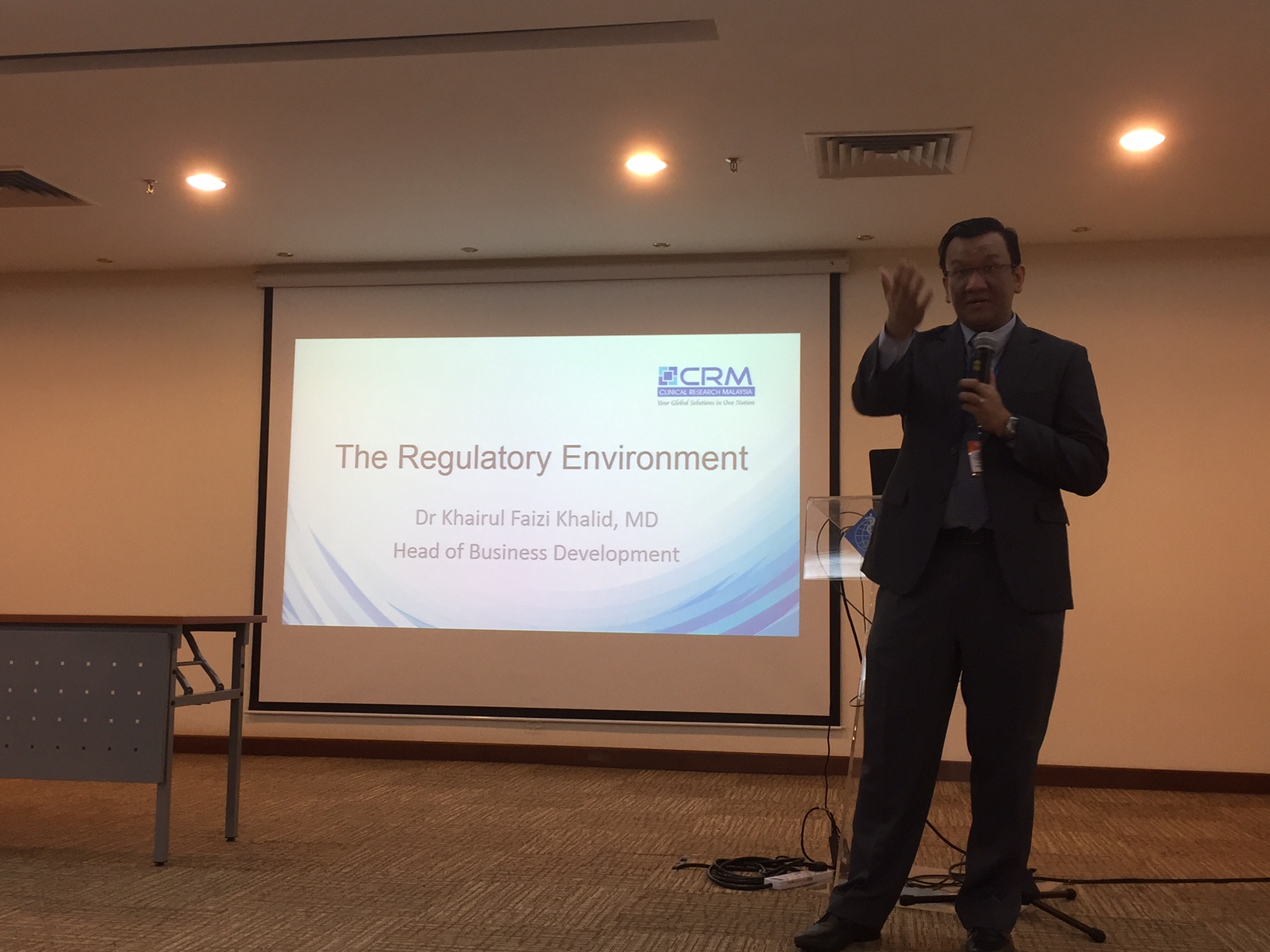 Moving on, Prof Teng had given the participants a good exposure on the different phases of clinical trials. On the other hand, Dr Yap gave a very interesting talk on adaptive design in clinical trials, which is an innovative approach whereby the researchers make modifications to the original design based on the observations of the outcomes gathered as the study progresses. The aim of such approach is to quickly identify drugs that are effective. Dr Vijayakumar gave a detailed talk on the management of clinical data while conducting the trials. Last but not least, monitoring drug safety and adverse events (untoward events or adverse effects of medicines) as a key component of clinical trial was emphasised by Mr Jefferey. The take-home message from this workshop was that anything that is given to a patient will bring effects to the patient. Therefore, from the designing and conducting the trial to the recording and reporting of data will involve many protocols which are stringent steps and rules to be followed strictly. This is highly essential to ensure the safety of the subjects as well as the integrity of the data collected.
Moving on, Prof Teng had given the participants a good exposure on the different phases of clinical trials. On the other hand, Dr Yap gave a very interesting talk on adaptive design in clinical trials, which is an innovative approach whereby the researchers make modifications to the original design based on the observations of the outcomes gathered as the study progresses. The aim of such approach is to quickly identify drugs that are effective. Dr Vijayakumar gave a detailed talk on the management of clinical data while conducting the trials. Last but not least, monitoring drug safety and adverse events (untoward events or adverse effects of medicines) as a key component of clinical trial was emphasised by Mr Jefferey. The take-home message from this workshop was that anything that is given to a patient will bring effects to the patient. Therefore, from the designing and conducting the trial to the recording and reporting of data will involve many protocols which are stringent steps and rules to be followed strictly. This is highly essential to ensure the safety of the subjects as well as the integrity of the data collected.




